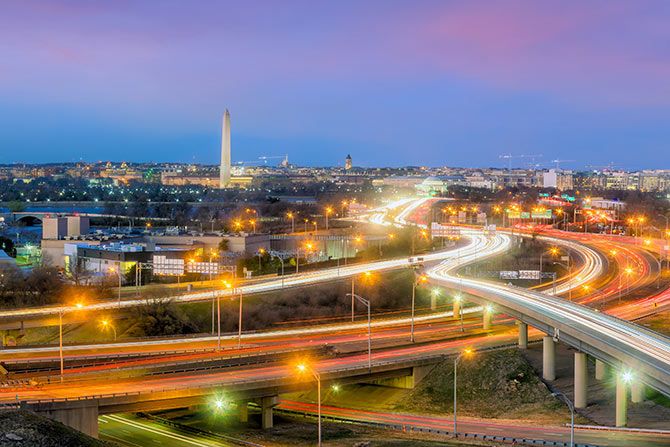President Donald Trump signed into law the “One Big Beautiful Bill Act” (H.R. 1) on July 4. For NADA members, the passage of the bill represents another significant victory this year, as many of NADA’s tax priorities were addressed. Among the provisions included are:
- Pass Through Deduction (Section 199A): Makes permanent at 20%. Also expands the deduction limit phase-in range by increasing the $50,000 (non-joint returns) and $100,000 (joint returns) amounts to $75,000 and $150,000, respectively. Effective for taxable years beginning after Dec. 31, 2025.
- Estate Tax: Makes permanent and increases the exemption to $15 million (individual)/$30 million (joint), and adjusts for inflation annually thereafter. Effective for estates of decedents after Dec. 31, 2025, and gifts made after Dec. 31, 2025.
- Interest Deduction Limitations (Section 163(j)): Reverts to EBITDA permanently for taxable years ‘‘beginning after Dec. 31, 2024.”
- Bonus Depreciation (Section 168(k)): Permanently restores and extends 100% bonus depreciation for property acquired and placed in service on or after Jan. 19, 2025.
Other relevant provisions:
- New EV Credit (Section 30D): Eliminated after Sept. 30, 2025, for consumers who purchase certain new EVs. (The law does not include the exemption for manufacturers who sold less than 200,000 EVs, which was included in a previous version of the bill.)
- Leasing and Commercial EV Credit (Section 45W): Eliminated after Sept. 30, 2025.
- Used EV Credit (Section 25E): Eliminated after Sept. 30, 2025.
- Temporary Auto Loan Deductibility: Above the line deduction on auto loan interest for new vehicles. $10,000 cap and MAGI limits of $100,000 (individual)/$200,000 (joint). Vehicle must be final assembled in the U.S. Deduction available from 2025-28.
- Income Tax Rates: Permanently extends modified income tax rates. The provision also adds an additional year of inflation adjustment to the income tax thresholds to which the 10%, 12% and 22% brackets apply. Effective for taxable years beginning after Dec. 31, 2025.
- SALT — Business/PTET: The 2017 Tax Cuts and Jobs Act created a $10,000 cap on the amount of state and local taxes (SALT) that could be deducted from a taxpayer’s federal taxable income. Some states created a workaround for the SALT cap by allowing pass-through businesses to deduct certain state and local taxes at the entity level, known as the pass-through entity tax (PTET). While prior versions of H.R. 1 would have limited the SALT workarounds, NADA successfully fought to preserve PTET.
- SALT — Individual Cap: Increases SALT cap deduction to $40,000, for 2025, with 1% annual increases through 2029. Reverts to $10,000 in 2030. Deduction phases down with income over $500,000.
- Expense Deduction (Section 179(b)): Permanently increases to $2.5 million, reduced by the amount by which the cost of qualifying property exceeds $4 million. Effective for property placed in service for taxable years beginning after Dec. 31, 2024.
- Clean Heavy-Duty Vehicles (IRA Section 60101): The Inflation Reduction Act established a program to grant awards for purchasing heavy-duty electric vehicles. The bill repeals the program and rescinds any unobligated balance. Effective on the date of enactment.
- CAFE Rule: Reduces NHTSA’s Corporate Average Fuel Economy (CAFE) penalty for automakers not meeting the standards to $0, effective on the date of enactment.
Tariffs
The tariff landscape continues to change and cause uncertainty among dealers and consumers.
In July, the Trump administration announced agreements with Japan, the European Union and Korea that will reduce the existing 25% tariffs on imported automobiles and auto parts to 15%. On July 31, President Trump raised tariffs on about 70 countries that have not made new trade deals with the United States, effective Aug. 7. Based on the information available at this writing, it does not appear the new tariffs will apply to auto and auto parts.
NADA has advocated against the imposition of tariffs on autos and auto parts from U.S. trading partners with the administration, emphasizing the effect tariffs will have on vehicle affordability, availability, sales and dealership viability. NADA has met with the White House, Office of the U.S. Trade Representative, Department of the Treasury, Department of Commerce, other government agencies and members of Congress to discuss the impact of tariffs on dealers and consumers.
NADA remains committed to engaging with the administration to best inform its decisions. We will continue to urge decision-makers in Washington to acknowledge that franchised auto dealers are fully American businesses, predominantly small businesses, and that tariffs impact them regardless of whether they sell domestic or international vehicles.
EPA’s EV Mandate
In late July, the Trump administration proposed a new rule that would eliminate the EPA’s ability to regulate greenhouse gases from vehicles. If the rule is finalized, EPA greenhouse gas rules will be revoked. The proposal will go through a lengthy review process before it is finalized, likely in 2026. If finalized, NADA expects a variety of court challenges.
NADA is also supporting a bill that would prevent the EPA mandates from going into effect while the proposed rule is being finalized. This bill is a separate effort to stop the EV mandates from the rule Trump proposed on July 29, but it illustrates the variety of tracks NADA is taking to combat these mandates.
CARB/ZEV Mandate
In June, President Donald Trump signed into law three NADA-backed Congressional Review Act resolutions (CRAs) that revoked California’s ability to ban gas/hybrid cars and diesel trucks.
Following the president’s signing, California’s Attorney General filed a lawsuit against President Trump and EPA Administrator Lee Zeldin, claiming that these actions are unlawful. Ten other states that were enforcing California’s now-defunct car and diesel truck ban rules joined the lawsuit.
NADA and ATD continue to monitor California’s litigation and are prepared to intervene in defense of the CRAs.
Catalytic Converter Anti-Theft Legislation
The PART Act (S. 2238) was reintroduced in the Senate by Sens. Amy Klobuchar (D-MN) and Bernie Moreno (R-OH). Reps. Jim Baird (R-IN) and Betty McCollum (D-MN) are expected to introduce companion legislation soon. The reintroduced bill includes non-controversial revisions to help increase support for the legislation.
This legislation addresses a major concern for dealers as it will require new vehicles to have unique, traceable identifying numbers stamped on catalytic converters at the time of assembly. The bill also establishes a federal criminal penalty for theft, sale, trafficking or known purchase of stolen catalytic converters. Despite the widespread support for the PART Act, the Alliance for Automotive Innovation is the only organization that is publicly opposing the legislation.
Volkswagen/Scout and Honda/Afeela (Direct to Consumer Sales)
NADA has spoken with the new North American head of the Volkswagen Group, Kjell Gruner, and advised him of our position on Scout. Also, in June, NADA met with Lance Woelfer, VP, automobile sales, and Jennifer Thomas, head of Corporate Affairs Honda, to share our position with regard to Afeela.
NADA will continue to work with state and metro dealer associations to protect the franchise system and stand behind dealers across the country.









